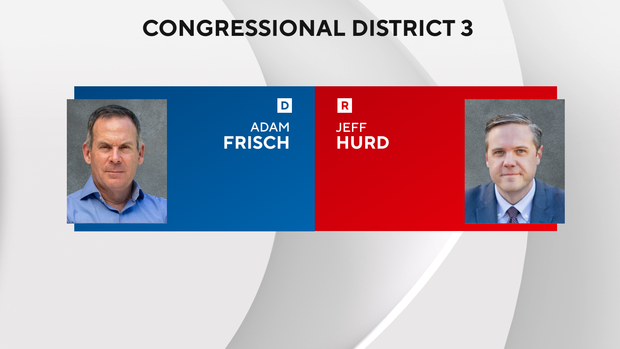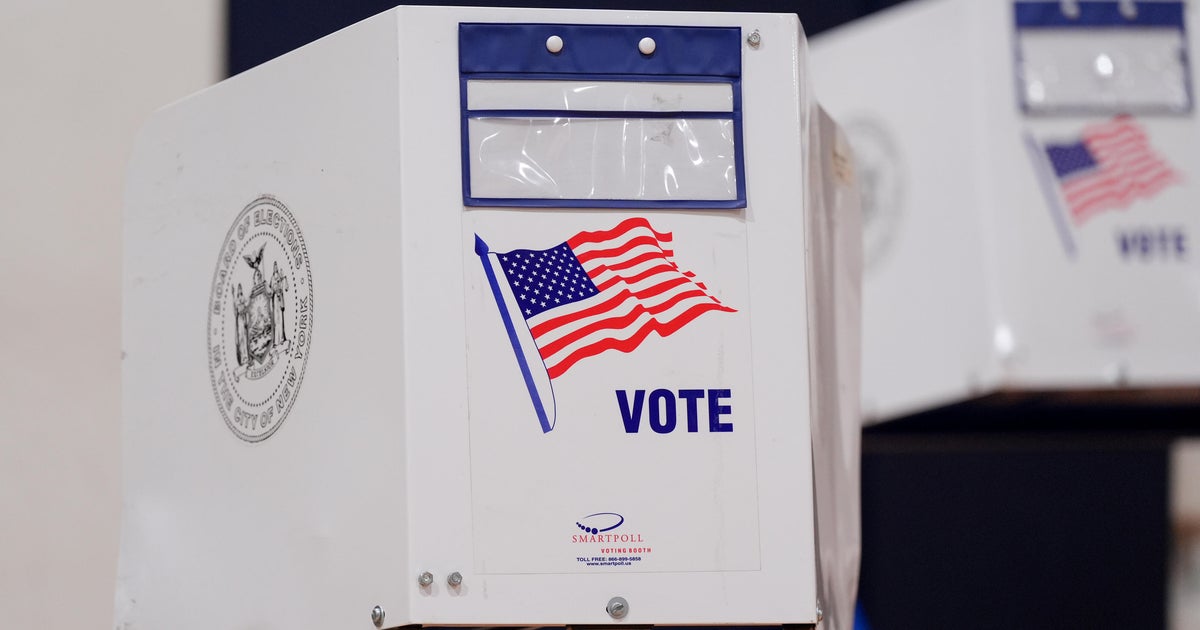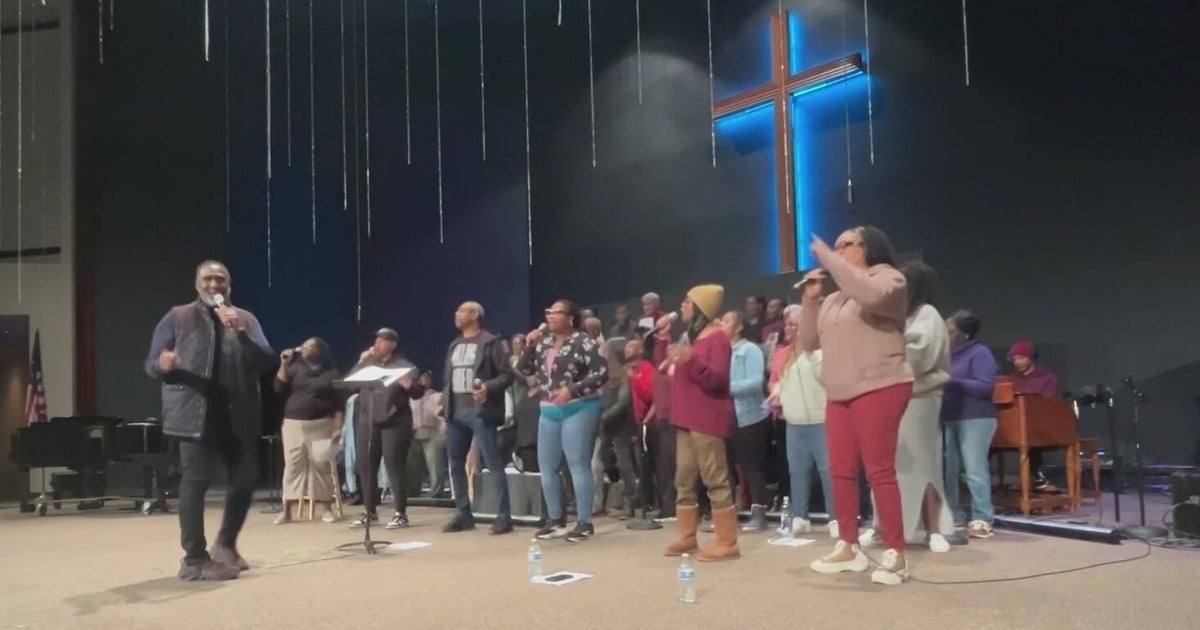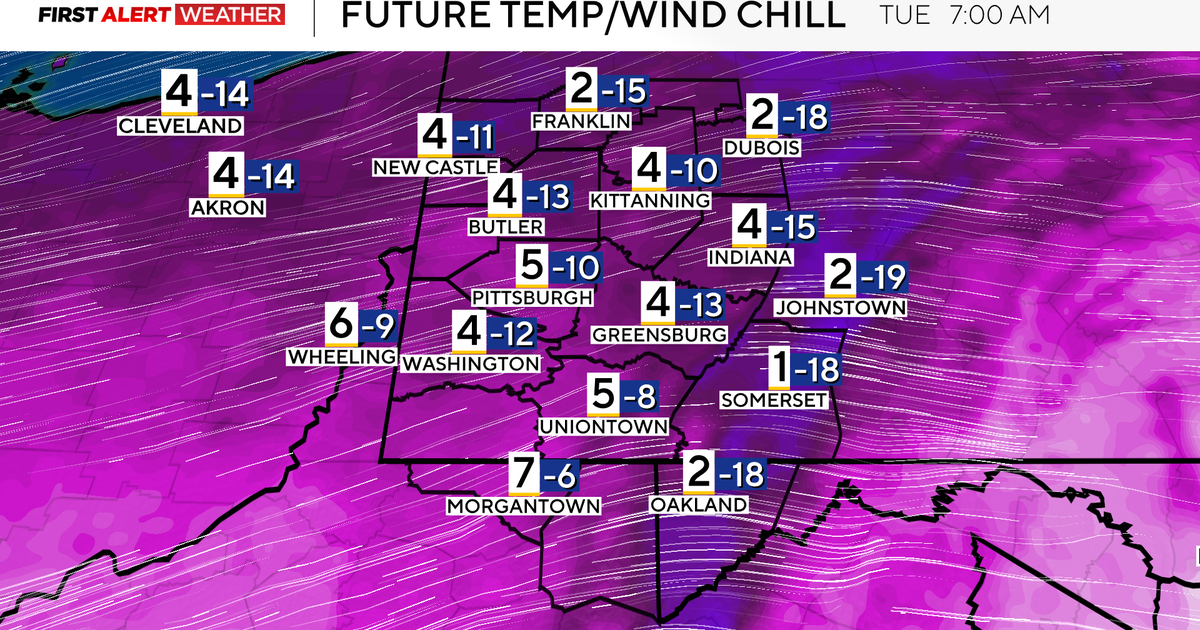Jeff Hurd, Adam Frisch reach their final day of campaigning for open seat in Colorado's 3rd Congressional District
The race to become the new representative in Congress for Colorado's 3rd Congressional District is nearly over, and the hopefuls are in their final day of campaigning. Republican Jeff Hurd and Democrat Adam Frisch are the leaders the race, and each is hoping to replace outgoing Congresswoman Lauren Boebert.
After a very close race two years ago in CD3, which represents much of Colorado's Western Slope as well as the city of Pueblo, Boebert decided to change districts, move east and run for an open seat for Congress in the 4th Congressional District.
Hurd is an attorney and lives in Grand Junction, and this is his first foray into politics. Frisch is a business owner and former Aspen city councilman who is running for Congress for the second time.
In the Republican primary in June in CD3, Hurd won with 41% of the vote and defeated Ron Hanks and four other Republicans.
Frisch lost to Boebert two years ago by 546 votes and his concession didn't come until 10 days after Election Day. A few months after the tight race he announced he would be running for Congress again. He was unopposed in the Democratic primary.
Hurd traveled to Denver for a conversation with CBS News Colorado Political Reporter Shaun Boyd about his campaign. One of the questions Boyd asked was about his take on big government, an issue many rural Coloradans he hopes to represent have concerns about.
"What role do you think the government should have in establishing workplace policies? Sick leave, paid family and medical leave?" Boyd asked.
"In Colorado, we've had a dramatic overreach, particularly on the state level," Hurd said. "I will tell you as somebody that represented the small business community -- I was a small business owner in Grand Junction, was chairman of the board of the Grand Junction Area Chamber of Commerce -- I see how bad government regulations hurt small business."
"And I know they're well-meaning and intended, but a lot of these -- particularly state regulations, but also federal regulations -- hurt small businesses, make it harder for them to succeed and thrive. And so I think letting small businesses make those decisions and be competing with each other and providing additional benefits as part of that competitive process is much better than just having a top-down government solution with our state or federal government dictating ... every single benefit that we need to provide to employees."
Frisch also accepted the invitation for an interview with Boyd in Denver, and she posed the same question to him.
"I'm pro-worker and pro-union and pro-labor," Frisch said. "And I think one of the interesting things that's happened over the past decade or so is (we are) just starting to see Republicans, not just Democrats, trying to figure out how to support the workforces. That is the lifeblood of where we are as American people."
"To me, the state should figure this conversation out. It's interesting. The states have put on a bunch of minimum wage ballots, and they've passed every single time, including in some of the most Republican states. So, I prefer the federal government to stay away from (it) as much as possible and let the states kind of make those conversations. So if the states want to raise minimum wage, good for them. If they don't, that's up to them, and then the workforce can kind of figure out how to do it. But to me, the wages are just part of a pro-worker conversation to make sure that the dignity of work, with a college education or not, is honored and supported in western and southern Colorado."








